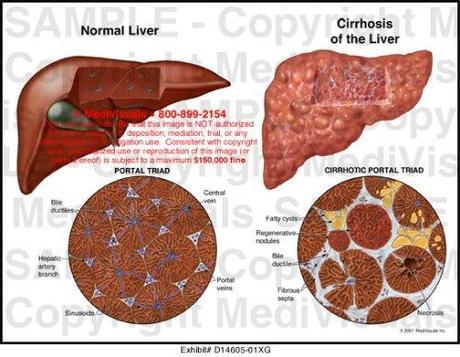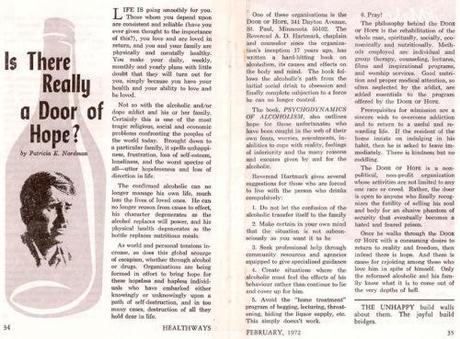Yesterday, while surfing the net, I happened across a mug shot of 63-year-old actor/singer David Cassidy who, 5 days ago on January 10, had been arrested for DUI in Los Angeles. This is his third DUI arrest.
I was stunned by his mug shot. While none of us looks the same in our 60s as we did in our 20s, the man in the mug shot bears not even the faintest resemblance to the Cassidy I remember from The Partridge Family.

So I threw up a post, “What a life of alcoholism does to David Cassidy,” which simply laid out the facts, with pictures of Cassidy past and present, and the dates and places of his DUI arrests.
Well, that post clearly struck a nerve. One commenter inexplicably accused me of coddling Cassidy, while another did the exact opposite. A psychiatrist would find their over-reactions — of projection and denial — fascinating.
Prompted by swampygirl’s comment that Cassidy looked bloated in his mug shot, I looked up the health effects of alcoholism and became so alarmed by what I found that I decided to do a separate post on this, instead of as a comment in response to swampygirl.
There’s a whole host of health problems that result from chronic heavy drinking, bloating or fluid retention is only the mildest of them — a symptom of cirrhosis of the liver. WebMD gives 12 health risks of alcoholism, in no discernible order of severity or probability. Some of the health problems go away if the alcoholic stops drinking; most are irreversible.
1. Anemia: Heavy drinking can cause the number of oxygen-carrying red blood cells to be abnormally low. This condition, known as anemia, can trigger a host of symptoms, including fatigue, shortness of breath, and lightheadedness.
2. Cancer: ”Habitual drinking increases the risk of cancer,” says Jurgen Rehm, PhD, chairman of the University of Toronto’s department of addiction policy and a senior scientist at Toronto’s Centre for Addiction and Mental Health. Scientists believe the increased risk comes when the body converts alcohol into acetaldehyde, a potent carcinogen. Cancer sites linked to alcohol use include the mouth, pharynx (throat), larynx (voice box), esophagus, liver, breast, and colorectal region. Cancer risk rises even higher in heavy drinkers who also use tobacco.
3. Cardiovascular disease: Heavy drinking, especially bingeing, makes platelets more likely to clump together into blood clots, which can lead to heart attack or stroke. In a landmark study published in 2005, Harvard researchers found that binge drinking doubled the risk of death among people who initially survived a heart attack.
Heavy drinking can also cause cardiomyopathy, a potentially deadly condition in which the heart muscle weakens and eventually fails, as well as heart rhythm abnormalities such as atrial and ventricular fibrillation. Atrial fibrillation, in which the heart’s upper chambers (atria) twitch chaotically rather than constrict rhythmically, can cause blood clots that can trigger a stroke. Ventricular fibrillation causes chaotic twitching in the heart’s main pumping chambers (ventricles). It causes rapid loss of consciousness and, in the absence of immediate treatment, sudden death.
4. Liver disease, the most severe being cirrhosis: Alcohol is toxic to liver cells, and many heavy drinkers develop cirrhosis, a sometimes-lethal condition in which the liver is so heavily scarred that it is unable to function. But it’s hard to predict which drinkers will develop cirrhosis. For some unknown reason, women seem to be especially vulnerable.

5. Dementia: As people age, their brains shrink, on average, at a rate of about 1.9% per decade. That’s considered normal. But heavy drinking speeds the shrinkage of certain key regions in the brain, resulting in memory loss and other symptoms of dementia. Heavy drinking can also lead to subtle but potentially debilitating deficits in the ability to plan, make judgments, solve problems, and perform other aspects of “executive function,” which are the higher-order abilities that allow us to maximize our function as human beings. In addition to the “nonspecific” dementia that stems from brain atrophy, heavy drinking can cause nutritional deficiencies so severe that they trigger other forms of dementia.
6. Depression: It’s long been known that heavy drinking often goes hand in hand with depression, but there has been debate about which came first — the drinking or the depression. One theory is that depressed people turned to alcohol in an attempt to “self-medicate” to ease their emotional pain. But a large study from New Zealand showed that it was probably the other way around — that is, heavy drinking led to depression. Research has also shown that depression improves when heavy drinkers go on the wagon.
7. Seizures: Heavy drinking can cause epilepsy and can trigger seizures even in people who don’t have epilepsy. It can also interfere with the action of the medications used to treat convulsions.
8. Gout: A painful condition, gout is caused by the formation of uric acid crystals in the joints. Although some cases are largely hereditary, alcohol and other dietary factors seem to play a role. Alcohol also seems to aggravate existing cases of gout.
9. High blood pressure: Alcohol can disrupt the sympathetic nervous system, which, among other things, controls the constriction and dilation of blood vessels in response to stress, temperature, exertion, etc. Heavy drinking — and bingeing, in particular — can cause blood pressure to rise. Over time, this effect can become chronic. High blood pressure can lead to many other health problems, including kidney disease, heart disease, and stroke.
10. Infectious diseases: Heavy drinking suppresses the immune system, providing a toehold for infections, including tuberculosis, pneumonia, HIV/AIDS, and other sexually transmitted diseases (including some that cause infertility). People who drink heavily also are more likely to engage in risky sex. “Heavy drinking is associated with a three-fold increase in the risk of contracting a sexually transmitted disease,” Rehmn says.
11. Nerve damage: Heavy drinking can cause a form of nerve damage known as alcoholic neuropathy, which can produce a painful pins-and-needles feeling or numbness in the extremities as well as muscle weakness, incontinence, constipation, erectile dysfunction, and other problems. Alcoholic neuropathy may arise because alcohol is toxic to nerve cells, or because nutritional deficiencies attributable to heavy drinking compromise nerve function.
12. Pancreatitis: In addition to causing stomach irritation (gastritis), drinking can inflame the pancreas. Chronic pancreatitis interferes with the digestive process, causing severe abdominal pain and persistent diarrhea –and it’s not fixable. Some cases of chronic pancreatitis are triggered by gallstones, but up to 60% stem from alcohol consumption.
†
Allow me to make a couple of personal comments and reflections:
Many years ago, my husband had a teaching assistant — a Brit named Cunningham in his late 20s or early 30s who was obviously very intelligent and dazzlingly articulate.
Mr. Cunningham was also an alcoholic.
A year after we first knew him, he died, leaving a wife and a newborn baby boy. He had been committing a slow suicide with alcohol.
While reading the above list of health risks of chronic heavy alcohol drinking, alert and astute FOTM readers no doubt read between the lines to identify what ails a man for whom I had asked for prayers. Now we know we need to pray even harder, not just for his health, but that he overcomes the underlying disorder.
I’ll leave you on a hopeful note. It is an essay written by a faithful reader of FOTM, pnordman (click image to enlarge):

Peace,
Eowyn

